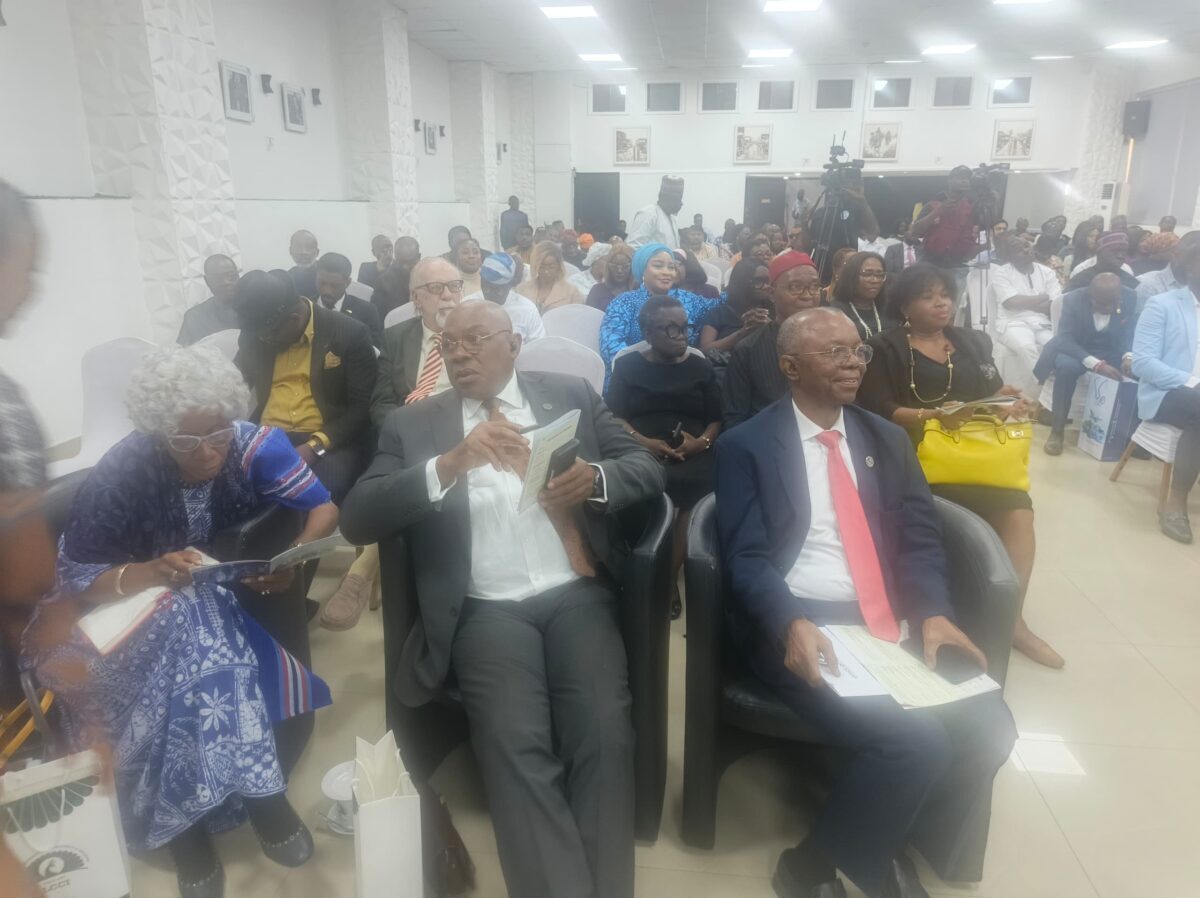
Amid growing efforts by the Nigerian Ports Authority (NPA) to modernize port operations and infrastructure, maritime stakeholders at a recent Lagos Chamber of Commerce and Industry (LCCI) forum have emphasized the need for deeper collaboration and strategic reforms to enhance Nigeria’s trade competitiveness.
The dialogue, which brought together leading industry bodies,including the Association of Nigerian Licensed Customs Agents (ANLCA), the National Association of Government Approved Freight Forwarders (NAGAFF), and the Nigerian Ports Consultative Council (NPCC), focused on unlocking the full potential of Nigeria’s port system through technological advancement, regulatory clarity, and infrastructure investment.
Ementke Nwokeoji, President of ANLCA, speaking on behalf of his members, noted that the recent strides by the NPA and related agencies are commendable, but require stronger synergy with port users to deliver greater results. “There’s a collective recognition that the port ecosystem is improving, but certain operational issues still drive up cost and dwell time. By streamlining overlapping charges and harmonizing processes, we can reduce the burden on importers and exporters,” he said.
On his part, the President of NAGAFF; Tochukwu Ezisi, represented by Secretary Emeka Nwosu, echoed this position, emphasizing that digitalization and modern infrastructure—key elements the NPA is actively pursuing, are critical to making Nigerian ports globally competitive. “We are not unaware of the efforts being made, especially in terms of automation and new port developments. However, more coordination among agencies and stakeholders will help speed up the process and reduce delays,” Ezisi stated.
In a goodwill message presented by Mrs. Jean Chiazor Anishere (SAN) on behalf of the Nigerian Ports Consultative Council (NPCC) Chairman, Bolaji Sunmola, the council highlighted the importance of digital transformation to match global standards. “NPA’s digital drive, such as the push for a Port Community System, is a welcomed move. The faster we implement it fully, the sooner we can enjoy streamlined operations across the board,” Sunmola stated.
He stressed that integrated platforms can significantly enhance real-time coordination among port stakeholders and regulators. Drawing comparisons to ports in Singapore and Rotterdam, he said, “Technology has transformed port efficiency worldwide. Nigeria is on that path, and the Lekki Deep Sea Port is already showing signs of what is possible when we embrace innovation.”
The NPCC’s recommendations included fast-tracking the deployment of the National Single Window and Port Community System, leveraging artificial intelligence for berth management and cargo tracking, and increasing investment in smart infrastructure such as automated cranes and digital cargo handling systems. Sunmola further called for improved public-private partnerships, noting that shared innovation between government and the private sector has been the foundation of successful port reforms globally.
Also present at the session were representatives of the Abuja Memorandum of Understanding on Port State Control for West and Central African Countries (Abuja MoU), who advocated for regular reviews of port charges to reflect regional competitiveness and cost-effectiveness. Represented by its Secretary General; Capt. Sunday Umoren, the body commended the progress made by NPA and other stakeholders, while calling for further consolidation.
“Significant efforts have been made, and it’s time to ensure that these gains are not lost to uncoordinated charges or outdated processes,” Umoren advised, even as he cautioned that trade diversion to neighboring ports can be curbed if Nigeria’s ports remain attractive in terms of cost and efficiency.
The Abuja MoU also recommended enhanced investment in hinterland connectivity, including road and rail systems, to reduce congestion and transit delays. “Ports are only as strong as their links to inland logistics. NPA’s ongoing collaboration with other government agencies on multimodal transport must be sustained,” Umoren added.
Speaking earlier, LCCI President Mr. Gabriel Idahosa, acknowledged the vital role of the NPA in facilitating trade and noted the importance of aligning port operations with Nigeria’s AfCFTA goals. He said, “Nigeria’s ports are key to our regional trade ambitions. With stronger infrastructure and regulatory coherence, we can attract more investment and cut logistics costs for businesses.”
He added that inefficiencies such as congestion and bureaucratic delays have cost businesses of an estimated ₦2.5 trillion annually, but stressed that reforms underway, if fully implemented can reverse this trend. “Stakeholders must continue working with agencies like the NPA to ensure ongoing initiatives deliver measurable results,” Idahosa said.
Chairman of the LCCI Public Affairs and Advocacy Committee, Sir Ladi Smith, focused on cargo clearance timelines, noting that Nigeria still lags behind global leaders in turnaround efficiency. “While it currently takes between 14 to 20 days on average to clear cargo here, other countries achieve it within 24 hours,” Smith said, urging the adoption of global best practices.















